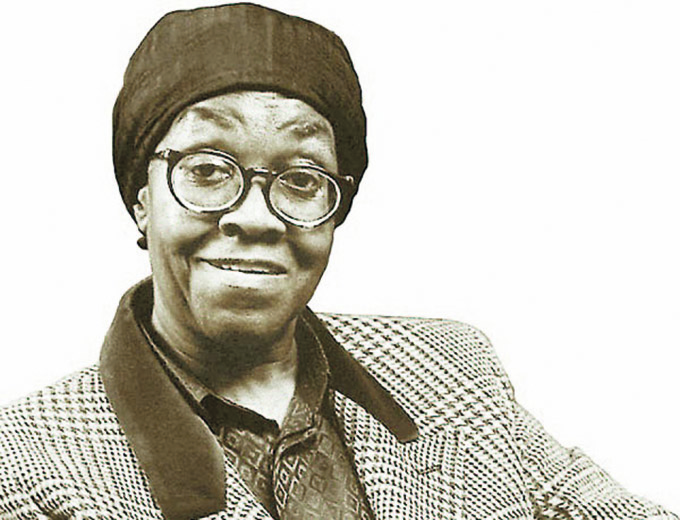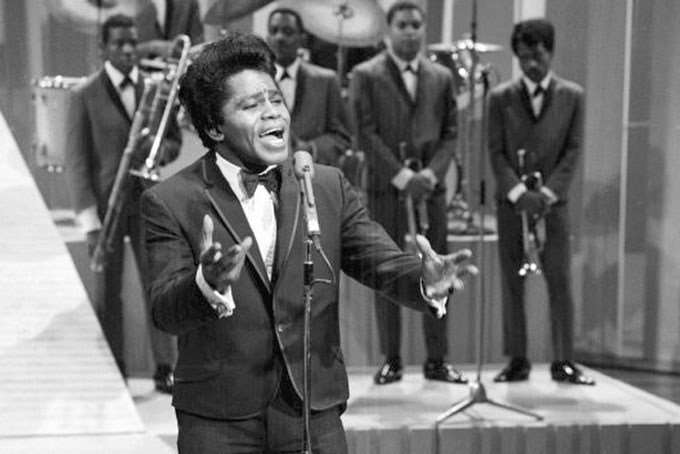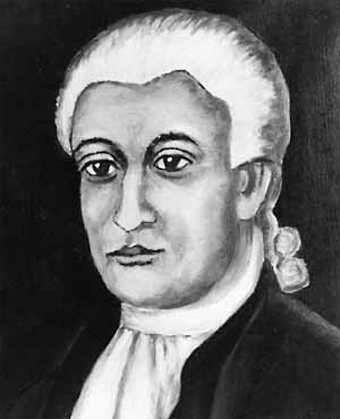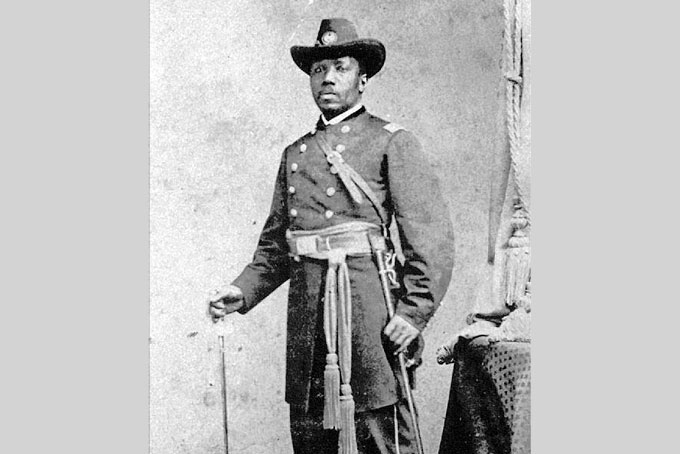-
MAY 1
1866—The two-day Memphis, Tenn., race riots, one of the most savage events immediately following the civil war, begins. When it was over, former Confederate soldiers, angered by the loss of the Civil War and the new status for Blacks, had killed 46 Blacks and two of their White supporters, as well as raped five Black women and torched over 90 homes, schools and churches. In support of the rebel soldiers, local police arrested hundreds of Blacks and not the Whites who were rioting. However, the savage nature of the rioting in Memphis (and a similar disturbance in New Orleans) prompted Congress to pass radical Reconstruction to aid Blacks, a Civil Rights bill, and the 14th Amendment to the Constitution guaranteeing citizenship and equal protection to former slaves.

1950—Brilliant poet Gwendolyn Brooks, the first African-American to win a Pulitzer Prize in 1950 for her second collection, “Annie Allen,” is born on this day in Topeka, Kan. At 17, she started submitting her work to “Lights and Shadows,” the poetry column of the Chicago Defender, an African American newspaper. Brooks published her first book of poetry, “A Street in Bronzeville” (1945) with Harper and Row, after strong show of support to the publisher from author Richard Wright. Brooks died on Dec. 3, 2000 in Chicago, Ill.
1967—The “Long Hot Summer” begins. The period between May 1 and Oct. 1, 1967 witnessed the most dramatic and destructive series of Black urban disturbances in American history. Major riots took place in 40 American cities. There were also lesser disturbances in 100 smaller towns and cities. Many felt the riots were sparked by a collective sense of frustrated hopes and a new urban generation less willing to adopt peaceful means for change.
-
MAY 2

1844—Master inventor Elijah McCoy is born in Colchester, Ontario, Canada. He would become the holder of over 50 patents—most were mechanical devices, which greatly improved engines, locomotives and steamships. The superiority of his inventions led to the phrase “the real McCoy” coming to mean the mark of excellent and authenticity. McCoy was born to slaves who escaped America for a free life in Canada. His parents became successful and sent him to study engineering in Scotland when he was only 16. After the end of U.S. slavery, he settled in Ypsilanti, Mich., and began his remarkable career.

1870—One of the most unsung religious leaders in American history, William Seymour, was born on this day in Centerville, La. Seymour became pastor of the Azusa Street Mission in Los Angeles and the catalyst for the worldwide Pentecostal movement. He not only rejected racial barriers in the church in favor of “Unity in Christ,” but he is also credited with eliminating many of the restrictions placed on women in the church. He died of a heart attack in 1922.
-
MAY 3

1845—Macon B. Allen passes the Massachusetts bar thus becoming the first African American lawyer to pass a state bar and the first Black person permitted to practice law in the United States. Allen was born in Indiana but after the Civil War he moved to South Carolina where he was elected a judge in 1873.

1933—Singer James Brown, known as “The Godfather of Soul” for his game-changing style in funk, soul and R&B throughout his career, was born on May, 3, 1933, in Barnwell, S.C. Brown charted on the Billboard Pop Charts close to 100 times and on the R&B charts at least 110 times. In a career that spanned six decades, Brown influenced the development of several music genres. Brown died on Dec. 25, 2006.
1949—The U.S. Supreme Court ruled in favor of J.D. Shelley on Shelley v. Kraemer, a landmark housing and civil rights case. After years of living with relatives or in rental properties, Shelley, who’d migrated from the South to St. Louis, Mo., with his family to escape racial oppression, decided to buy a house. He learned, however that many owners had agreed to a real estate contract clause that banned them from selling their homes to people of “Negro or Mongolian” descent. After Shelley finally bought a house, White homeowner Louis Kraemer hired an attorney to invalidate the contract and took the case to court. After Kraemer successfully appealed, which reversed the first court’s decision, the Shelley family took the case to the U.S. Supreme Court and won.
-
MAY 4

1891—Dr. Daniel Hale Williams founds the Provident Hospital and Training Center in Chicago, Ill. It becomes a major training center for Black doctors and nurses. Williams is best known, however, for performing the nation’s first open heart surgery on July 9, 1893. He operated on a man injured in a knife fight. The man would live for another 20 years after the surgery.
1961—Thirteen Freedom Riders began bus trips through the South to test Southern compliance with a 1960 U.S. Supreme Court ruling outlawing segregation in interstate transportation facilities. They were soon joined by hundreds of other “Freedom Riders” of all ages and races. Despite the Court decision, dozens of Freedom Riders were arrested as the South attempted to hang onto its segregationist ways.
-
MAY 5

1905—Robert Sengstacke Abbott founds the Chicago Defender newspaper calling it “the world’s greatest weekly.” Indeed, he would build the Defender into the largest circulation and most influential Black newspaper of its day. The Defender, which became the most widely circulated Black newspaper in the country, came to be known as “America’s Black Newspaper” and made Abbott one of the first self-made millionaires of African American descent. In 1919, Illinois Gov. Frank Lowden appointed Abbott to the Race Relations Commission. Abbott died of Bright’s disease in 1940 in Chicago, Ill.
-
MAY 6

1787—Prince Hall organizes the nation’s first Black Masonic lodge in Boston, Mass.—African Lodge #459. Hall would go on to become the father of Black Masons in America and a major Black leader in the Northeast.

1812—Martin R. Delany, a pioneering Black nationalist, is born on this day in Charles Town, Va. Abraham Lincoln once described him as one of the most brilliant men he had ever met. Delany would fight in the Civil War to end slavery and become one of the nation’s first Black military officers. After the war he became a doctor. But over the years he became frustrated with American racism and began to advocate a return of Blacks to Africa.
-
MAY 7

1800—On this date the founder of the settlement which would grow to become the city of Chicago, Jean Baptiste Pointe Du Sable, sold his property and left the settlement. The Haitian-born frontier trader and businessman had a history of building significant wealth, losing it and building it again. He would die 18 years later in St. Charles, Mo.

1878—Black inventor, Joseph R. Winters, receives a patent for his designing of the fire escape ladder.
2010—A report on felony disenfranchisement laws begins to receive widespread publicity. The report was actually released on April 21 by the NAACP Legal Defense and Education Fund. It showed that 5.3 million Americans were being denied the right to vote because of past felony convictions. Disproportionately, those denied voting rights were African American. In fact, the report revealed that 13 percent of Black males could not vote because of felony convictions. Historically, most voting disenfranchisement laws were enacted after the Civil War as a means to keep newly freed Blacks from voting.